#Vladislav Roslyakov
Text
On April 20 2016, Dylan Klebold had been dead for as long as he had been alive
On April 20 2016, Eric Harris had been dead for as long as he had been alive
On March 21 2021, Jeffery Weise had been dead for as long as he had been alive
On November 7th 2025, Pekka-Eric Auvinen will be dead for as long as he had been alive
On December 5th 2026, Robert Hawkins will be dead for as long as he had been alive
On November 28 2028, Jeffery Dahmer will be dead for as long as he had been alive
On April 16th 2030, Seung Hui Cho will be dead for as long as he had been alive
On January 24 2031, Ted Bundy will be dead for as long as he had been alive
On December 14 2032, Adam Lanza will be dead for as long as he had been alive
On May 23rd 2036, Elliot Rodger will be dead for as long as he had been alive
On October 17th 2036, Vladislav Roslyakov will be dead for as long as he had been alive
On May 24nd 2040, Salvador Ramos will be dead for as long as he had been alive
On June 8th 2041, Andrew Blaze will be dead for as long as she had been alive
On November 30th 2042, Nikita Lytkin will be dead for as long as he had been alive
On June 7th 2066, Richard Ramirez will be dead for as long as he had been alive
#feel free to yell at me if my math is wrong#and theres prob people i should have added but forgot#teeceecee#tccblr#true cringe community#eric and dylan#smiggles#adam lanza#sandy hook#red lake shooting#jeff weise#jeffery weise#pekka eric auvinen#jokela school shooting#robbie hawkins#westroads mall shooting#jeffery dahmer#seung hui cho#virgina tech shooting#ted bundy#elliot rodger#ista vista massacre#kerch polytechnic#kerch shooting#vladislav Roslyakov#salvador ramos#robb elementary school shooting#andrew blaze#richard rameriz#academy maniacs
291 notes
·
View notes
Text
An Interview with Galina Roslyakova: Vlad’s personal life according to his mother
A year after the shooting, BAZA, a Russian news outlet, interviewed Vlad’s mother Galina Roslyakova. Here are several details she had disclosed about her son:
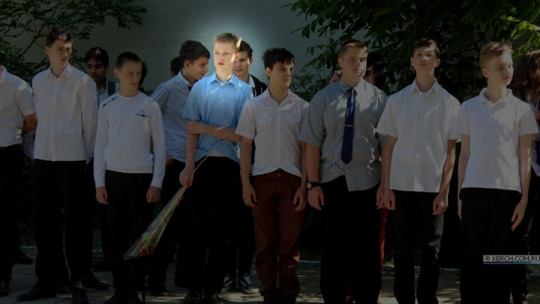
He was gifted in drawing and engineering, however was an average student.
When he was younger, Vlad attended a kindergarten in Kerch with a chess focus. His mother considered him as a normal child who had an interest in drawing. He had hobbies such as architectural modeling, construction, and designing. He had a particular fascination with airplane models that he would try to configure by himself, although his father would occasionally help.
He then continued to paint throughout his life and excelled at it, Galina believes he inherited this skill from his father, Igor. Vlad mostly expressed an interest in drawing domestic animals and portraits of people. He focused a lot on the details.and drew rather thoroughly. Unfortunately, she has none of his drawings left to reminisce.
In school, he was “statistically average”. He studied for at least three to five hours and was in the middle line of poor to excelling. He didn't dislike nor have an interest in school and had no specific goal yet. According to Galina, “Not all dreams can be realized.” So in a pragmatic sense, his parents tried to instill something that would have perhaps helped him by trying to search for something suitable for his life and future. She had also described Vlad to be somewhat confused or unsure of himself:
“You can show a different side of yourself. You can realize yourself somewhere else. And this period of transition from school to college was somehow unconscious. A lot depends on how this might turn out. Every person's views and values change. Children must realize during this period that they are growing up primarily for themselves. He understood that he was not quite a child and not quite an adult.”
Vlad did not finish highschool and went straight to college, explaining why he was 18 during his 4th year.
Galina and Igor saw no point in enrolling him into 10th and 11th grade because it was unclear to them that he would graduate at all, seeing that his academic performance was mediocre at best. During his transition from highschool to college, Galina recalled it to be a stressful experience, “just like any other transition”, she says. She had attended all parent meetings and recalled that teachers would often describe her son to be socially inept. He was not keen on socializing but she figured this must have been his way of coping with his adaptation, since it was a contrasting environment to what he was used to.
“I went to all parent meetings. At the beginning of the training they were carried out. I talked with curators and other teachers. There was a phrase that he was not very sociable . Not all people are open and ready to communicate with others. At that time it was a period of adaptation. Everyone tolerates it differently, but I wouldn’t say that he had a difficult time with it.”
More on relationships, since their house was located in a residential area not far from other neighbors who lived nearby, Vlad easily could communicate with a few neighborhood kids whom his mother considered to be his “friends”. Rather, they were his classmates.
“I think Vlad chose exactly those friends who suited him according to his views and interests at that period of his life when he was at school. He also played Minecraft. Well, of course, communication there is no longer only with classmates.”
Vlad still kept in contact with his father despite his mother's wishes to not be so in touch.
Technically, Vlad's parents were not officially divorced. Igor’s traumatic brain injury which subsequently led to the development of a mental illness was seen by Galina as a danger toward her and her son if they continued to live together. Coupled with the fact that he developed a dependency on alcohol, she had figured out that she had to make the resolution to move out with her son to protect their well-being. Despite this, Galina mentions that even with their separation, Vlad still communicated with his father, since it is a relationship not within her control. At first, Vlad was offended but as he grew, he began to contemplate the idea of his mother’s decision. He continued to communicate with his father as he grew older.
“With age, he made his own decision. He begins to make his choice whether he should communicate with his father. What will this give him and does he need it? That is, he could decide for himself. That is, in this regard, I gave him freedom of choice.”
He would often go to the garage together on weekends, which developed Vlad's interest in technology and personal interests like motorcycles, which he would’ve liked to study. Vlad then on became a major in the course: installation, commissioning and operation of electrical equipment of industrial and civil buildings.
Signs of isolation and depression were under the radar since he barely communicated.
Apart from the detail that teachers have said he was rather not very sociable, closer to the third year he already became withdrawn and kept to himself. He would often divert this topic of his behavior as his ‘right to privacy’ whenever asked, so no further questions would ensue. He was silent most of the time, got ready to go to class straight away and sat in his room ("another office") to scroll through his phone. He was quiet, didn't talk about himself that much, which led her to not anticipate the events that would unfold soon after. However, she said that she could sense a slight change in him, since he became more private. She did respect his boundaries however, since she saw it as his right to personal space.
“Well, slightly, so to speak. Because, in principle, many people reach such a period and age, and so, in communicating with their friends who have children of this age, many children tend to have, so to speak, personal space. Personal life, this is how the period begins. You know, like “I have the right to personal space, ‘I have the right to privacy.’ Within reason, because we live together in the same apartment”
Did he need more attention? Galina expresses that although she didn't primarily focus on him at all times, she did care for him and paid attention. She tried to make him talk and actively made efforts to communicate with him to get him to open up more about himself, however to no avail. So, in an outward perspective, everything seemed rather normal for her, and with the lack of properly established and structured communication, it was difficult to see through her son. After all, you cannot properly fit in puzzle pieces when there are no pieces provided to arrange.
It was difficult for her to speculate about the topic of whether or not he was depressed, nor did she anticipate that somehow he felt abandoned because he would often just sweep things under the rug. The signs didn’t manifest in any way in everyday life because again, he was very secretive and rarely talked about himself in conversations at home, so things easily fell out of notice and undetected.
“What percentage of love do children want to receive from us? Do we feel this as parents? Or if they tell us, let’s say: 'Well, at the technical school there were difficult tasks and classes, I’m so tired that I don’t want to communicate.' And you are trying to do everything to make contact with him. The children say: 'Well, I don’t want to now.' You won't really force him too much... But you still have to try to do it. Basically, I tried to do all this. What provoked it, I can’t say anything. For me, all this still remains a big, big secret as a mother. I cannot put together logic and specific pieces of the puzzle for myself. Therefore, everything remains like this.”
Vlad's online presence was monitored until the age of 14.
Galina had monitored his online access until he was around the ages of 13 to 14. After the age of 16, this period however stopped because of the gap between parents and their children's familiarity with devices and the technologicaĺ world. So, she stopped keeping track.
“I wished in my heart that somewhere they had slowed him down.”
She was unaware of his online presence in crime communities since 2016. According to her, at home he only sat and played minecraft,
“I didn't see this. If a person really wants to hide something... Maybe he did it sometimes, but not in my presence. At home he sat and played Minecraft. He talked there with one, then with another, then boys, then girls - they all communicate with each other there, laugh. There were different emotions, there was laughter.”
She was aware that he went to study firearms in the summer.
Vlad shared a common interest with his father with firearms. He also said he would join the army. Galina speculated that this might be due to the benefits, since the income of military salaries was fairly high. Vlad earned an internship at a plant prior to this, and it was good news for her but in reality, Vlad's perspective was that he did not generally take a liking to the place.
According to him, “I talked to the people who work there, I don’t see much prospects in income and in general my place in this.”
During the summer, he then began to study firearms through the internet and via the Internet, register with government services, and collect documents. She was against this act because she saw no purpose to this, however, she couldn't stop him. He excused this by saying he had an interest in hunting. Though she initially thought that he had given up on this prospect and moved on, since these documents were rather complex and difficult to complete, he then went on to successfully buy a gun after passing the exams and receiving his license.
She hadn't known of this, of course, since it was reported that he hid his gun in an abandoned warehouse to avoid speculations from her.
Here's the article, if you want to read more:
https://baza.io/posts/1b2005f5-d53e-4380-989d-b6f846cd6aab
102 notes
·
View notes
Text
Vladislav Igorevich Roslyakov was born on May 2, 2000. The family where he grew up and was brought up turned out to be dysfunctional – his parents separated when the child was very young. Left in the care of his mother.
Mother was in a sect, and father used to be weird, drunkenly suffered a traumatic brain injury and became disabled




#tc community#tc confessions#tcc art#tcc edit#tcc fandom#tcc love#vladislav roslyakov#eric columbine#eric and dylan
73 notes
·
View notes
Text

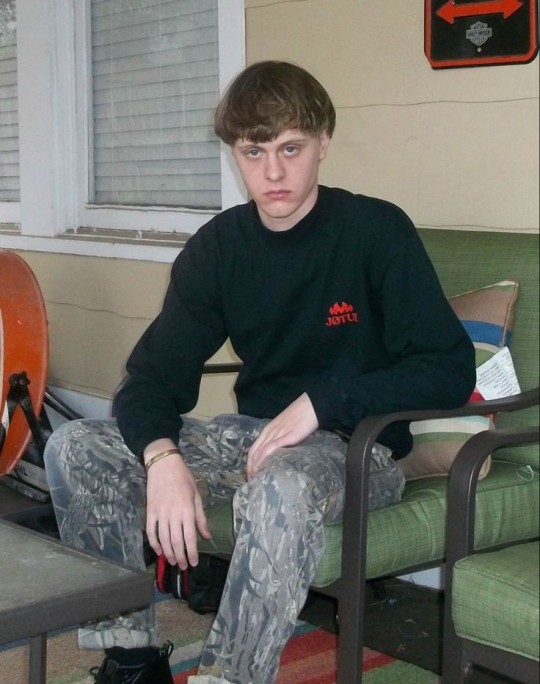

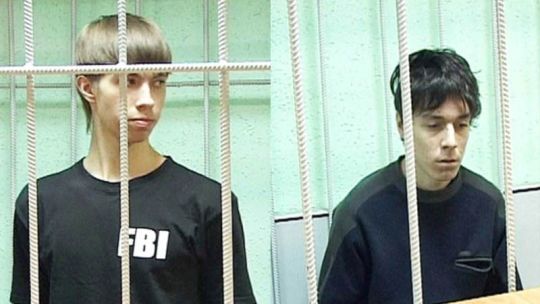
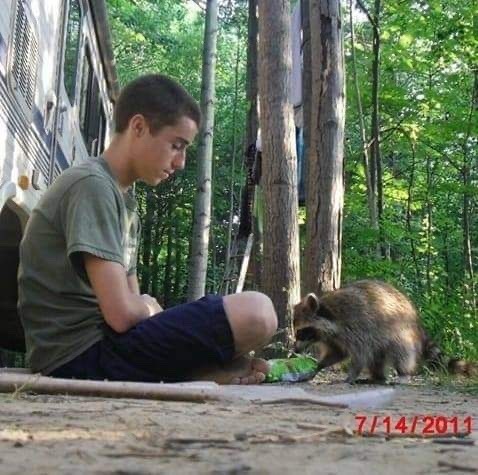
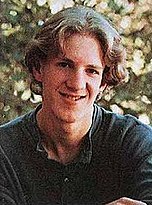
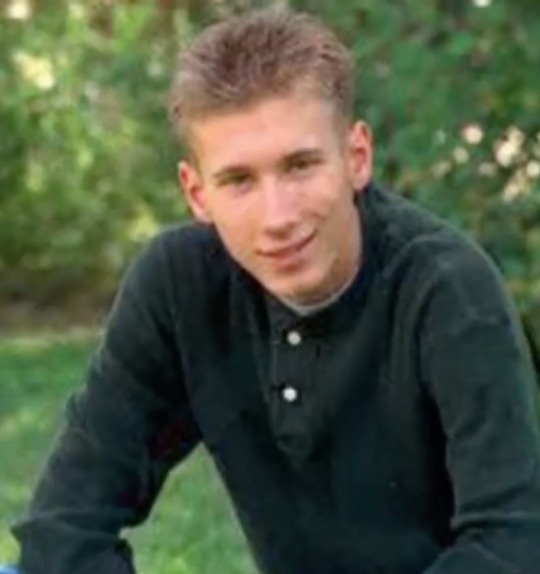
Why do all the cute and hot guys have to be killers and I can't have them!!!
I mean look at them there so beautiful ♡♡♡♡
#eric and dylan#tcc fandom#tcc columbine#nikita lytkin#artyom anoufriev#school shooters#tjlane#dylannstormroof#kipland kinkel#vladislav roslyakov
426 notes
·
View notes
Text




61 notes
·
View notes
Text
Shh! Guys quiet down, he’s playing guitar 🥺
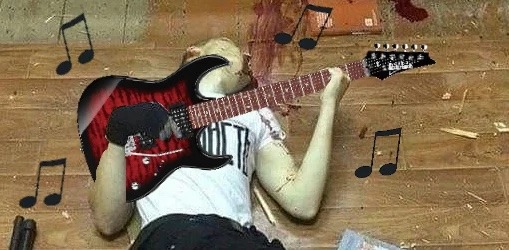
#kerch polytechnic#polytechnic college#teeceecee#tccblr#tcc tumblr#truecrime#school shooters#vladislav roslyakov
154 notes
·
View notes
Text
who i would cast in biopics (tcc edition)
part one
Eric Harris


Jacob Bertrand
-
Artyom Anoufreiv


Alexander Arnold (with lighter hair)
-
Vladislav Roslyakov


Joe Cole
-
Nikita Lytkin


Joe Dempsie
-
Dylan Klebold


Ewan Mitchell
#tccblr#teeceecee#true cringe community#tc community#tcc columbine#tcc fandom#eric harris#artyom anoufriev#Vladislav Roslyakov#nikita lytkin#dylan klebold
40 notes
·
View notes
Text

the original and the copycat
#eric harris#vladislav roslyakov#tccblr#tcc tumblr#tc community#tcc fandom#tcc art#columbine art#columbine 1999#eric and dylan#eric columbine#repost#teeceecee#tcc columbine#tee cee cee#true crume#kerch polytechnic#reb
51 notes
·
View notes
Text

Okay thanks for the detail, I guess.
274 notes
·
View notes
Text

look into my eyes and see my weakness
#deftones#ericharris#pekka eric auvinen#santeria#old web#eric deulen#transparent gif#eric columbine#vladislav roslyakov#alex frost#tee cee cee#emo#goth#grunge
48 notes
·
View notes
Text
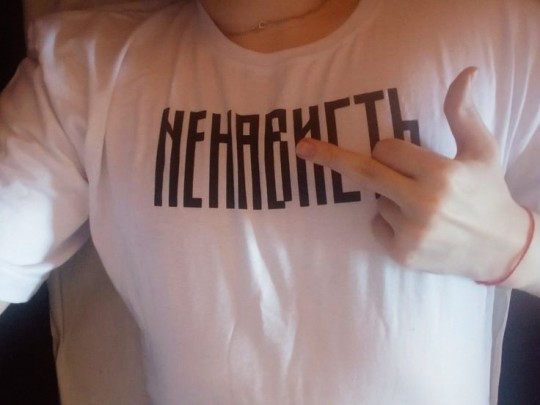


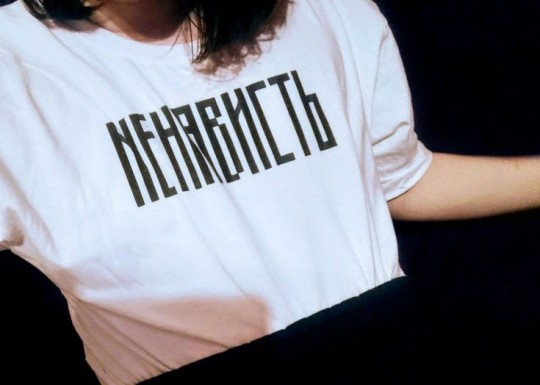
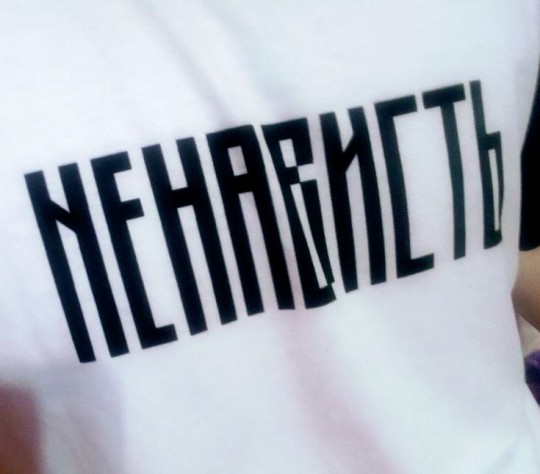

Vladislav Roslyakov cosplay
#school shooters#tc community#tcctwt#tcc tumblr#vladislav roslyakov#vladislavroslyakov#Kerch#truecrimecommunity#truecrime#tcc columbine#massacre
55 notes
·
View notes
Text
Speak, Hear, and See No Evil; Embody it.
An Essay Analysis on Religious Trauma and its connection to Nihilism through the Case Study of Vladislav Roslyakov
There is a profound intersection in faith and mentality. To uncover one’s whole being, the aspect of spirituality is well within the equation. While many use their faith as a symbol of fortitude, a steadfast hope that guides their way of living – creating practically a coherent path in a world so inconsistent and unpredictable, others see it as the pinpoint of their internal turmoil. Faith is not for all of us. If one rejects the idea of seeking solace in an institute of collective belief, then they do not believe in such a concept as “being saved”. To them, there is no redemption, only pain.
Some people need a rather tangible and physical form of revelation for an adherence of recognition. It is the ideology: when you look up at the sky and do not see anyone looking back at you, that is when you know it’s not for you. You do not believe in such a thing as self-sacrifice, for you only see the world in a lens of self-slaughter. Often, this strained relationship with faith becomes Religious Trauma.
Psychotherapist Dr. Alyson M. Stone acknowledges a positive link between religion and mental health but notes a lack of studies on spirituality's impact. According to Stone, “Religious trauma is more prevalent than the research suggests and often is a contributing factor to many of the problems that bring people to therapy, including depression, anxiety, and relationship difficulties. For this reason, religious trauma deserves careful attention” (Stone 2013, p. 324). Furthermore, Marlene Winell (2012) coined "religious trauma syndrome" (RTS) to describe the distress from "toxic theology." This refers to authoritarian religious doctrines demanding strict adherence, often equating disobedience to damnation.
In the case of Vlad, his mother was a Jehovah's Witness. This religious sect is banned under Russian law despite an estimated 175,000 followers in the country. In 2017, Russia’s Supreme Court found the organization guilty of inciting religious hatred by "propagating the exclusivity and supremacy" of their beliefs. Subsequent to Russian anti-extremism laws extending to non-violent groups in 2007, placing it into the same category as neo-Nazis and members of al Qaeda.
To understand this, we must first look into Vladik’s childhood leading up to this point. Vlad’s father, a former Russian soldier who served in Afghanistan for several years, sustained brain damage from an assault, making him aggressive toward his family, leading to frequent physical abuse over his wife, parents, and even his son. He was also an alcoholic, where his violence would worsen when intoxicated. By the age of 10, his parents had filed for a divorce and he lived under the custody of his mother in a rundown apartment with poor conditions because they could not afford amenities.
Following this, his mother had renowned her faith. Neighbors described her as a devout follower who spent a lot of time in prayer. They recounted that she had barely any concern for Vlad due to being too focused on her faith, but there were many instances of her controlling nature towards her son’s life. According to Vlad’s profile background, his mother would frequently punish him for disobeying rules of her faith. Although he accompanies her in services, he does not recognize himself as a follower. He publicly expressed his contempt on Jehovah’s Witnesses as, “some kind of fools who dance and sing.” A friend of his had also expressed that the two would often make fun of the community. Despite these differences, Vlad still appeared to care for his mother and understood that she had no other means of coping and did not have a community to interact with since she had no friends or relatives close by. With this, he made sure to spend time with her, yet we can discern that these regulatory rules are merely pushed unto him.


Vlad was not allowed to engage in hobby classes, amateur activities, or even watch movies as the faith forbids these activities. According to his VK chats with Liza Panchenko, his favorite movies were Stand by Me, Pulp-Fiction, and Lost Highway. However, he stated, “I didn’t watch any good movies after 2005”. Though this may be a speculation, one of the possible reasons for this is because he was forbidden by his mother. However, despite her warnings, it is clear that he still would go against her.
Vlad became sports-obsessed and developed an interest in weaponry, violence, neo-nazism, war, and killers. Despite occasionally picking up fights and being placed on the “chair of shame” by his college director, Vlad was reserved and withdrawn from others. His friends had described him as a loner, who was quiet and avoided making friends, rather talking about topics of violence, especially about Columbine. He had no intimate relationships or sense of future and practically only attended school because he was forced by his parents. He did not see any future and saw no escape other than death. Even with an interest in violence and guns himself, he expresses a disdain towards joining occupations like the armed forces.
Moving forward, it is crucial to recognize that the psychological distress caused by religious trauma can manifest into Nihilistic ideology. According to Alfred Alder, a psychoanalyst who founded individual psychology, human behavior is motivated by our unique experiences and the perceptions we garner off of these. To him, humans are driven by goals and we aim for superiority by striving for these goals which are molded by our values and aspirations. These in turn develop into a lifestyle that affects us in different aspects of our behavior.
Furthermore, Alder speculated that psychological development occurs when people pursue meaningful goals, though factors can disrupt this process. Exchanging the feeling of self-superiority with inferiority and emptiness. When one lacks any meaningful goal, they are devoid of any means to stay motivated because they have no inherent cause that may allow them to “live”.
From a nihilistic perspective, the absence of inherent meaning in existence can lead individuals to view life as a mere distraction. You exist, yet you do not truly live—merely passing time because life feels more like an obligation than a will. This allows you to fade into a concept and lose touch with your humanity. You become a mere entity in this world so vast that it cannot accompany the hatred you bear for it because you are insignificant. You see yourself as nothing, born out of your lack of purpose, therefore you are nothing.
To tie this into the conversation, trauma and abuse can disrupt the process of finding and garnering purpose, hindering the creation of goals and instead, promoting nihilistic attitudes. This includes religion, which can either be an antidote or a poison.
Religious trauma can be a catalyst for promoting nihilistic thinking. Taking Vlad as an example, when individuals are subjected to oppressive religious doctrines that instill shame, fear, and guilt – it can lead to an inflated sense of despair. This dread of being trapped in a system that dictates your worth and purpose fuels the tendencies to lean into nihilistic ideologies. You are cornered with no escape despite religion itself being a form of solace and escapism made for believers to feel less in despair. Vlad's strict upbringing in a religious environment and controlling mother contributed to his growing resentment towards religion and humanity itself. This lack of free will over his beliefs and choices only amplified this sense of dread over being powerless. Further alienating him from others because he believes that no one will truly help him, not even God.
If God is not there to help and save him and there are no means of a divine intervention in his life, then he will be the intervention himself. He is the destruction the world has insistently brought upon his life in the form of unforeseen circumstances. He is the “judgment” that he has been taught to fear. He is the delusion that he has created because of his fixation over power. He is hatred. He shall not speak of evil, nor hear it, or see it. So, in turn, he is the embodiment of the evil he is taught to not be.
Hatred, just like anger, does not come from evil but mistreatment. Though in this case, it is amplified to a point it becomes visceral. Vlad's constant exposure to religious extremism and the trauma he endured further deepened his nihilistic perspective and in turn, developed his trauma into a projection of an image of hatred over things he cannot control: his life and the people around him. Moreover, the trauma from his father's abuse and his mother’s overbearing nature only developed a deep-rooted cynicism towards conventional structures. In his belief, if he is controlled by anything but himself, it is evil.
To conclude, religion has a profound impact on an individual's psyche. It has the ability to either heal a person or destroy them completely. Vlad’s life is a perfect example of how one’s religious trauma can manifest into a distortion of their worldview, ultimately leading to them seeing no other escape in this miserable existence other than death.
92 notes
·
View notes
Text
💌 QUOTES BY VLADISLAV ROSLYAKOV
1) Any person is the complete opposite of me
2) I want to take my brains out of a shotgun. That would be pretty damn cool. No. It would be nice to get brains all over the floor.
3) Only the dead are independent
4) When I look at people I want to talk to, I smile
5) so fuck this world, the cons don't overlap the pros, why live at all? For the sake of a balcony in the country? You'll end up dead. Fortunately, I decide where to trim it myself. If anything, I'm not going to jump off the roof. I just degraded into a nihilist. It's like a billionaire to degrade into a bum. you look for some holy meaning in things, and then you realize that there is nothing there, so you degrade into a nihilist
6) in my opinion, there are no unique people. Well, people are divided by interests. let's say rednecks and "non-rednecks" who consider each other rednecks
7) on the contrary, fear is the only emotion that is not false





32 notes
·
View notes
Text
ok guys i obviously had to come back with my hit post








#tcc#tccblr#freakbob#dylan klebold#academy maniacs#adam lanza#columbine#eric harris#nikita lytkin#artyom anoufriev#nikita and artyom#vladislav roslyakov#dylannstormroof#dylann roof#smiggles#andrew blaze#randy stair
24 notes
·
View notes
Text
INTRO
Hii, I'm Sofia. You can call me Sofi, I'm 14 years old and I'm from Argentina, I'm looking for Tcc friends. I speak Spanish and English.
If you don't like it, block it, please don't report it.
I really like the Duck! movie. I also like Zero Day but Duck! is definitely my favorite. I don't like Elephant that much.
You can contact me via DM here, or via Instagram. My username is @tanascheelgirl. When there is more confidence, we may talk on WhatsApp.
my favorite cases; Adam Lanza, Andrew Blaze, Columbine, Luka Magnotta, Dnipropetrovsk maniacs, academy maniacs, Dylan Roof, Payton Gendron, Alyssa Bustamante, Jodi Arias, Anders Breivik, Aleksandr Pichushkin, Lindsay Souvannarath, Vladislav Roslyakov, TJ Lane, Richard Ramirez, Ted Bundy, Jahar Tsarnaev, Guilherme Taucci (Luiz no.), Bobby Lemon (¿) Salvador Ramos, Pekka Eric Auvinen, Rina Palenkova (etc!)
I hope you talk to me, I really feel alone, my DM is open for everyone.
#adamlanza#andrew blaze#randy stair#columbine 1999#columbine high massacre#columbine massacre#tcc columbine#dylan columbine#eric columbine#eric harris#dylan klebold#eric and dylan#luka magnotta#dnipropetrovsk maniacs#igor suprunyuk#viktor tcc#academy maniacs#nikita lytkin#artyom anoufriev#dylannroof#payton gendron#alyssa bustamante#jodi arias#anders breivik#aleksandr pichushkin#lindsay souvannarath#vladislav roslyakov#TJ lane#richard rameriz#Ted bundy
24 notes
·
View notes


